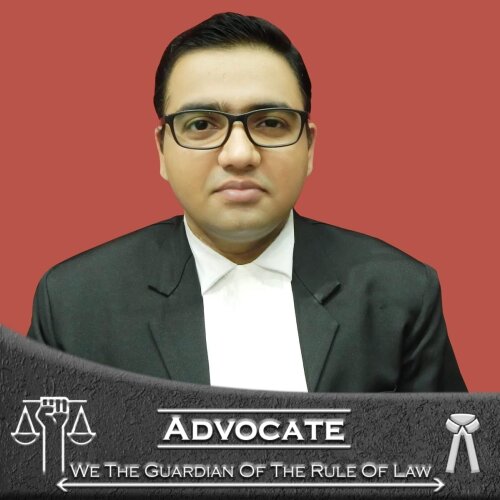Best Drug Crime Lawyers in Patna
Share your needs with us, get contacted by law firms.
Free. Takes 2 min.
List of the best lawyers in Patna, India
About Drug Crime Law in Patna, India
India's narcotic drugs and psychotropic substances laws are comprehensive across its territories, including Patna, in the state of Bihar. Drug crime law primarily falls under the Narcotic Drugs and Psychotropic Substances Act (NDPS Act), enacted in 1985. The law aims to deter drug trafficking and sales, while ensuring proper use for medicinal and scientific purposes. Punishments for drug crimes can range from financially significant penalties to rigorous imprisonment, depending on the gravity of the crime.
Why You May Need a Lawyer
A legal counsel specializing in drug crime law can be critically advantageous because this area of law is complex and often comes with severe consequences. Lawyers can guide you in understanding the charges, potential penalties and determine the most fitting defensive strategy. If you've been charged with a drug-related crime, such as possession, cultivation, production, or selling of narcotics, you should consult with a lawyer. Furthermore, if you are under investigation or have been summoned for questioning in such a case, it is advisable to seek legal help.
Local Laws Overview
The NDPS Act is the main legal framework concerning drug-related crimes in Patna. Under this legislation, the nature and quantity of drugs involved determine the severity of the punishment. For instance, small quantities can lead to a 1-year imprisonment, whereas involvement with commercial quantities may warrant up to 20 years imprisonment and hefty fines. The law also prohibits financing the trafficking of drugs, harbouring offenders, and offences involving children. It's notable that not only does the Act criminalize the act of selling drugs, but even the consumption is an offence with a potential 1 year imprisonment.
Frequently Asked Questions
What classifies as a 'drug' under Indian law?
The NDPS Act provides an extensive list of substances including opium, cannabis, heroin, LSD, cocaine, methamphetamine and their various forms and derivatives that are considered illegal drugs under Indian law.
Is possessing drugs for personal use as serious an offence as selling or trafficking drugs?
Yes, personal possession of drugs is considered an offence and carries its own set of penalties. However, selling or trafficking drugs typically carries significantly harsher punishments due to the larger quantities usually involved.
What is the punishment for consuming drugs in Patna, India?
As per the NDPS Act, consuming drugs can lead to up to one year of imprisonment or a fine, or both.
Are there any defenses available for drug offences?
A competent attorney can explore several defenses, depending on the circumstances of your case. Procedural defences, such as violation of the rights during the arrest, could be pursued. Other defences might involve questioning the quantity and nature of the substance.
Can minors be penalized for drug-related crimes under Indian law?
Indian law does not exempt minors from penalties related to drug crimes. However, India's Juvenile Justice system is geared towards the rehabilitation of minor offenders, including those convicted of drug-related offences.
What is the procedure after the arrest?
An arrested individual should be taken before a magistrate within 24 hours. The accused will be allowed to consult with their lawyer and apply for bail, if applicable.
Are there different charges for native citizens and foreigners?
No, the NDPS Act applies equally to Indians and foreigners. If a foreigner is charged with a drug crime, the nation's embassy or consulate will be notified.
Could a drug-related conviction affect my employment prospects?
Yes, a drug-related conviction could indeed affect future employment opportunities as potential employers may reconsider hiring candidates with criminal records.
Can a drug charge be removed from my criminal record?
Depending on the nature and severity of the crime, it might be possible to have a drug charge expunged from your criminal record. However, this usually requires time and a clean record since the conviction.
Is it important to hire a local lawyer for a drug case in Patna?
Each state might implement central drug laws in subtly different ways. Hiring a local lawyer could be beneficial as they would be familiar with regional nuances, local law enforcement, and judiciary.
Additional Resources
For more detailed information, one can refer to the Narcotic Drugs and Psychotropic Substances Act, 1985. Various Non-Governmental Organizations (NGOs) work in this domain, providing counsel and rehabilitation. Government departments like the Directorate of Revenue Intelligence and Central Bureau of Narcotics are also involved in controlling drug crimes.
Next Steps
If you find yourself involved in a drug-related legal issue, contacting a competent lawyer should be your first step. Consulting with a legal professional early can be extremely beneficial as they can guide you through the process, safeguard your rights, and work towards the best possible outcome.
Lawzana helps you find the best lawyers and law firms in Patna through a curated and pre-screened list of qualified legal professionals. Our platform offers rankings and detailed profiles of attorneys and law firms, allowing you to compare based on practice areas, including Drug Crime, experience, and client feedback.
Each profile includes a description of the firm's areas of practice, client reviews, team members and partners, year of establishment, spoken languages, office locations, contact information, social media presence, and any published articles or resources. Most firms on our platform speak English and are experienced in both local and international legal matters.
Get a quote from top-rated law firms in Patna, India — quickly, securely, and without unnecessary hassle.
Disclaimer:
The information provided on this page is for general informational purposes only and does not constitute legal advice. While we strive to ensure the accuracy and relevance of the content, legal information may change over time, and interpretations of the law can vary. You should always consult with a qualified legal professional for advice specific to your situation.
We disclaim all liability for actions taken or not taken based on the content of this page. If you believe any information is incorrect or outdated, please contact us, and we will review and update it where appropriate.
















